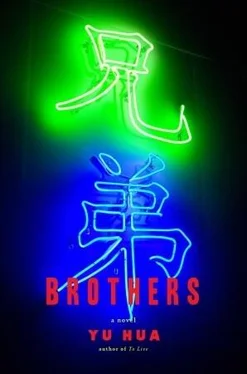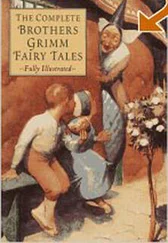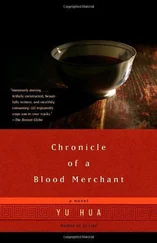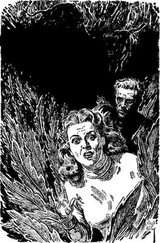Blacksmith Tong didn't smoke or drink, and he worked the counter energetically. His ironworker hands may have looked rough and clumsy, but he could count piles of cash faster than a bank teller. Rapidly licking his finger and counting the bills, he looked as if he could give a banks automated bill counter a run for its money.
Once Blacksmith Tong opened his cutlery shop, Little Scissors Guan s customers began to dwindle. Scissors Guan became very angry. Feeling that Blacksmith Tong had destroyed his business, he vowed to break off all relations, and once again their friendly alliance was destroyed. As business at Blacksmith Tongs cutlery shop boomed, Scissors Guan lost all his remaining customers, until finally he had no alternative but to close down his shop and simply roam the streets every day. He would frequently run into Yanker Yu and Popsicle Wang, who were similarly wandering aimlessly, and the three of them would then hold meetings like in the old days. Scissors Guan would vehemently curse Blacksmith Tong for first discouraging him from investing in Baldy Li's business and then stealing his livelihood and forcing him to close the knife-sharpening stall, which had been in his family for three generations, leaving him no recourse but to roam.
Yanker Yu and Popsicle Wang sympathized with Little Guan's predicament, and Wang suggested, "Why don't we go to President Li and ask him to give Scissors Guan a job?"
"Why ask President Li?" Yanker Yu replied. "We are both vice presidents. We might not be able to offer anything else, but we should at least be able to arrange for him to serve as a doorman."
"You want me to be a doorman? Fuck that!" Little Guan was enraged when he heard Yanker Yu s suggestion. "If it had not been for a minor mistake in the beginning, I would now be a trustee and vice president like yourselves, and furthermore would have been ahead of you in line."
Little Guan left in a huff. Popsicle Wang looked at Yanker Yu in astonishment, and Yu sniffed disapprovingly, "That was a classic case of the dog biting the hand that feeds it."
Little Guan finally made up his mind that if he could no longer get by in Liu Town, he might as well go out into the world to seek his fortune. He remembered the first time Baldy Li traveled to Shanghai and lost their entire investment. The second time, however, he went to Japan and made a fortune. Little Guan decided that if he was going to go away, he should go as far away as possible.
The spring flowers had bloomed, and as Little Guan determinedly walked down the street to the bus depot carrying one bag and dragging another, his father hobbled pitifully behind him. Little Guan had told everyone who would listen that he was going to travel farther and see even more of the world than Baldy Li ever had and had sworn that by the time he returned he would be richer in experiences and wealthier than Baldy Li. Old Guan couldn't keep up with him and fell farther and farther behind. He beseeched his son not to leave, calling out hoarsely, "You are not fated to be rich. Others might be able to make a fortune by going out into the world, but you certainly won't."
Little Guan paid his father no heed and energetically waved goodbye to the people of Liu. Everyone assumed he was going to Europe or America, and they shouted their congratulations, asking where he was going first. Little Guan's reply, however, greatly disappointed them: "I'm first going to Hainan Island."
They replied, "But Hainan Island isn't even as far as Japan."
"It's true that it's not as far as Japan," Little Guan noted, "but it is much farther than Baldy Li went the first time he left Liu, when he went to Shanghai."
Little Guan boarded the bus and was about to depart when Old Guan finally caught up. Grasping his walking stick with both hands, he watched as the bus drove away in a cloud of dust. With tears running down his cheeks he cried out, "Son, if you are fated to have only fifteen ounces of rice in this life, then even if you go away to seek your fortune, you still won't end up with a full pound."
Baldy Li also took his leave from Liu Town. Headed for Shanghai, he was wearing his usual tattered clothing as he made his way to the bus depot. Following behind him was a young man carrying his bags like an attendant. When people saw them, they asked who the youngster was, and Baldy Li replied that it was his driver. The crowds tittered—"So Baldy Li has hired himself a driver but doesn't even have a car" — and reported that they saw Baldy Li and his driver board the long-distance bus to Shanghai.
Baldy Li returned several days later. This time he didn't take the bus but, rather, rode back in a red Santana sedan he had bought in Shanghai. The driver drove Baldy Li's car into Liu Town and stopped in front of a department store. When Baldy Li emerged from his sedan, he was wearing a black Armani suit, having thrown away his tattered clothing while in Shanghai.
No one recognized Baldy Li when he first stepped out of his sedan. Everyone had grown accustomed to seeing him in his old and tattered clothing, and for him to suddenly be sporting a fancy Armani suit threw everyone for a loop. Furthermore, in those days only party leaders had sedans, so everyone speculated avidly about which important personage he might be. They felt that his shiny bald pate looked familiar, but they couldn't quite place it. Was he a TV actor? A high-level cadre from the provincial capital? Just as they were concluding that he must be a party leader from Beijing, the infatuated idiot, still wearing his watch set to Greenwich Mean Time, wandered over and called out in a ringing voice, "Director Li."
The crowds were stunned, marveling, "So it's actually Baldy Li!" Someone added, "This person does look like Baldy Li — in fact, they are virtually identical!"
LIU TOWN was turned upside down. The big-shot Baldy Li and County Governor Tao Qing now spoke as one and jointly announced that they were going to tear down the old Liu Town and build a new one. Everyone said that this was a classic case of collusion of business and government, with Tao Qing providing the official documents and Baldy Li providing the capital and labor. They demolished one street after another, gradually transforming the face of the entire town. For five full years, Liu Town was covered in dirt and dust from dawn to dusk. Everyone complained that they were inhaling more dust than oxygen and that the layer of dirt permanently caked on their necks was thicker than a scarf. They said that Baldy Li was like a B-52 bomber, carpet-bombing the formerly beautiful town. A few educated townspeople became more embittered than the rest; they remarked that the classic novel Romance of Three Kingdoms had a scene that was set in Liu, Journey to the West had a scene and a half, while Water Margin had two entire scenes — but now Baldy Li had demolished the town and its landmarks.
Baldy Li demolished the old Liu Town and built a new one. In just five years he expanded the roads and alleys and built countless new buildings, after which the townspeople stopped finding dirt on their collars and the amount of oxygen in their lungs again exceeded the dust. They still complained, however, saying that even though their old houses might have been old and decrepit, at least they had gotten them from the government. Although the new houses were big and new, it was nevertheless necessary to buy them from Baldy Li. There is a saying that rabbits will spare the grass growing next to their burrow. But Baldy Li was really rotten to the core and had chomped down on every last blade of grass around his home, given that all of his profit was extracted directly from his fellow townspeople. The people of Liu also complained that todays money had depreciated, that one thousand yuan today wasn't worth as much as one hundred yuan used to be. The town elders complained that now that the streets had been broadened, they were full of cars and bicycles, and the sound of horns could be heard from morning to evening. In the past, though it was true that the streets were indeed cramped and narrow, two people could nevertheless stand on either side and chat all day long without growing tired. Now, however, the streets were so broad that if two people stood on opposite sides, they wouldn't be able to hear each other, and even if they stood next to each other, they had to shout to make themselves heard over the din. There used to be only a single department store and one clothing store; but now there were at least seven or eight supermarkets, and clothing stores had begun to sprout up like mushrooms after a shower, to the point that both sides of the street were now lined with displays of garish garb for men and women.
Читать дальше










